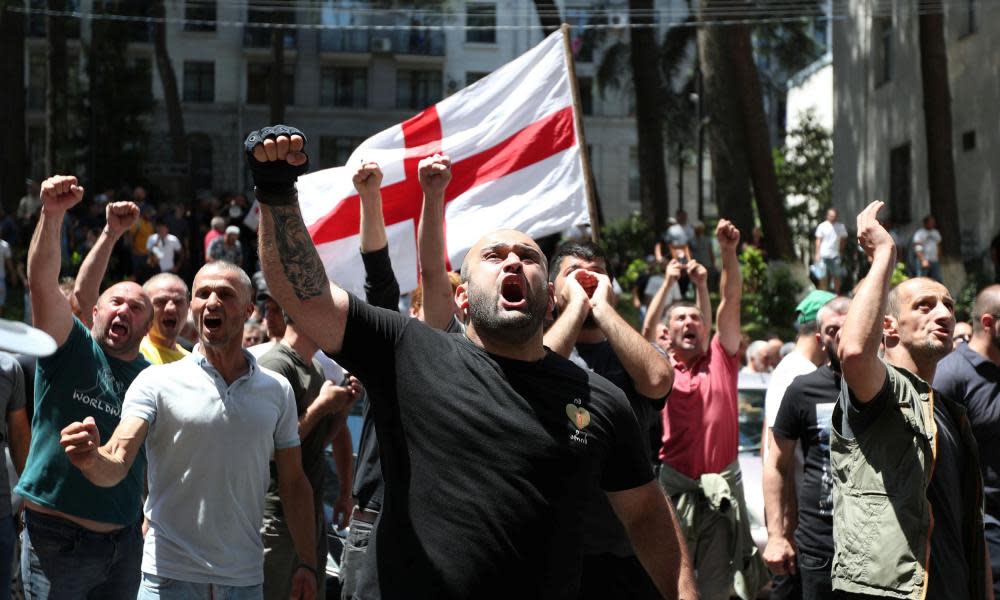Tbilisi Pride march cancelled after far-right attack on headquarters

Organisers have cancelled a Pride march in Georgia after far-right demonstrators stormed LGBTQ activists’ headquarters and attacked journalists in violence that the country’s prime minister appeared to blame on the event itself.
Video and photographs showed anti-gay protesters scaling a three-storey building to break into the headquarters of the Tbilisi Pride march in the Georgian capital, while elsewhere men with long beards in priests’ clothing punched and kicked journalists, with as many as 20 injured.
One journalist said he was beaten with a stick while others reported having their cameras and other equipment broken.

Irakli Garibashvili, the prime minister, on Monday appeared to claim the Pride organisers had provoked the violence, saying it was “unreasonable” to hold the demonstration in a public place that could lead to “civil confrontation”. Meanwhile, a member of parliament accused the “radical opposition” of sponsoring the pride events.
The organisers said later that the march would not be held. “War was declared against civil society and democratic values,” Tbilisi Pride said. “The actions of the government have clearly shown that they don’t want to perform its direct duty. The inaction of the executive power has put the health and lives of Georgian citizens in real danger.”
This is not the first time that violence has broken out over a pride march in Tbilisi, a city with a vibrant LGBTQ community that has also seen homophobic violence led by ultra-conservative politicians and Orthodox church leaders.
In 2013, priests led a mob chanting “no to gays” during an attack on a pride parade in Tbilisi that left its organisers in hiding. The violence has undermined Georgia’s efforts to bolster its pro-democracy and human rights credentials as it seeks greater ties with Europe.
It took six years for Tbilisi Pride to return to the streets with a “dignity march” in 2019. “Pride is always controversial,” said its director Giorgi Tabagari then, noting that the government had not been effective in combating homophobia. “But how long can we hide?”
Despite counterprotests, the events had been held peacefully for the last several years, making Monday’s violence a sign of backsliding. “We are witnessing a major state failure,” Tabagari said on Monday.

 Yahoo News
Yahoo News 
